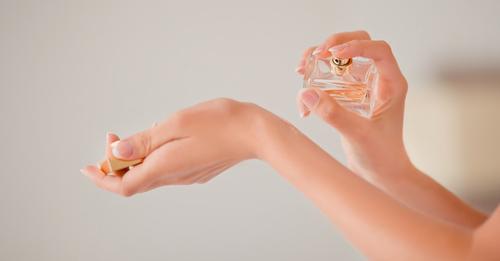You may have been fond of wearing perfumes, and deodorants, but you need to check about its safety in your pregnancy. Though its pleasant fragrance gives you a refreshing touch, the presence of chemicals in it may not be safe for your unborn baby. In this article, we will find out whether or not you can wear perfumes and deodorants during your pregnancy.
Are perfumes, and deodorants safe in pregnancy?
Perfumes and deodorants contain artificial fragrances that may have a class of ingredients named phthalates. It can be adverse for the health of your baby. A few animal researches also suggest that when you are exposed to specific types of phthalates, it can act as a hindrance to the sound growth of reproductive organs. Perfumes are one of the main products in which Phthalates are found.
As most of the manufacturers do not list this chemical compound in the product label, it is difficult to find whether a perfume contains it or not. Doctors advise pregnant women to potentially reduce their use of product that have added synthetic fragrance in them. In addition to perfumes, and deodorants, they also include lotions, powders, and creams.
Wearing perfumes, and deodorants to remain “odour-free” is a part of good personal hygiene. However, the regular use of commercial deodorants, and perfumes would not be appropriate during pregnancy your pregnancy.
This is because commercial perfumes, and deodorants normally contains harmful chemicals, and toxins that when penetrates into the skin can lead to minor form of abrasions on the skin. It may cause serious complications at the time of its application. The extent to which you are exposed to these toxic ingredients also matter. Deodorants and perfumes are generally applied daily, and stays on your skin for a longer time. In that way, due to increased exposure they can be harmful for you.
What can be the risks of using perfumes?
Pregnant women are generally sensitive to specific types of aroma, and smells. So, when you apply strong perfumes in pregnancy, it can cause you unpleasant symptoms such as nausea, dizziness, vomiting, and nausea.
Is there any alternative to perfumes?
If you are habitual of wearing perfumes every day, and can’t imagine yourself from going without it, then you can try fragrance-free natural alternatives such as essential oils. You may get lemon essential oils that gives you a citrusy flavor and is ideal to uplift your mood too.
In addition to it, there are several more variations in essential oils like Peppermint oil, Rosemary oil, Eucalyptus oil, Coconut Lime, Cinnamon, Balsam, Cucumber Melon, Passion Fruit, Cranberry, Green Tea, Hibiscus, Cocoa butter, Tea tree oil, Lavender oil, Sandalwood, Rose and a few more.
Under what circumstances should you avoid perfumes or deodorants completely?
Occasional use of perfumes or deodorants is safe for your body. If you have got cuts on your skin, then you should completely avoid using them. This is because, the chemical compounds, and harmful toxins present in these products have better chances to penetrate into your skin, and your bloodstream.
This can be harmful for your fetus. So, pregnant women with cuts, or rashes on the skin should completely avoid application of perfumes. This can result in substantial damage to the health of the fetus, and mother.
Another thing, that you need to consider when avoiding a perfume is that it can give rise to an allergic reaction in pregnancy. If you feel any type of allergy with their use, then you should discontinue its use immediately. If you have any doubts regarding the impact of any ingredient present in it, then you should talk to your doctor about it.
Are there any specific Perfumes to avoid?
Though the use of deodorants, or perfumes is considered to be safe in pregnancy, but there are some strong perfumes in the market that you should avoid. These are the perfumes made with following ingredients:
- camphor,
- pennyroyal,
- aniseed,
- wintergreen,
- birch,
- sage
- silica,
- parabens,
- BHA,
- sodium lauryl sulfate, and
- coal
- tars,
- petroleum by-products,
- propylene glycol, triclosan,
- polyethene, and
- formaldehyde
- aluminum can lead to gene instability, neurological ailments, and breast cancer
- phthalates can cause disruption in hormones
Things to consider when wearing perfumes
- Choose unscented form of perfumes and deodorants over the fragrant ones.
- Use in minimal amounts
- Avoid experimenting with various new products.
- Use safer essential oils in place of fragrant perfumes.
Conclusion
Occasional use of perfumes, and deodorants is generally safe in pregnancy. You can opt for either unscented, or natural fragrances in minimal amounts to avoid any risks during pregnancy. If you find any allergies, or discomfort on its application, then you should consult your doctor immediately.
